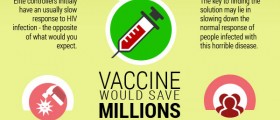
Many countries around the globe condemn HIV transmission severely, considering it a capital offense, regardless whether it has happened intentionally or unintentionally. Sometimes, the criminal exposure to HIV does not have to involve the transmission or transferring of the infection. The people who transmit HIV can, therefore, be charged with murder, manslaughter, assault or many other offenses. Currently, the US is working on criminalizing HIV transmission completely while the UK has already completed this process.
Modes of Transmission of HIV
Medically, HIV can be transferred from one person to another through several situations. Namely, sexual transmission is the most common way, where an infected individual infects the healthy one through sexual intercourse.
Alternatively, the virus can get into the body of a healthy person through blood transfusion or donation, along with any procedure that includes manipulation of blood, tissue, organs, semen or other infected body parts. Speaking of HIV transmission through liver, kidney, heart, bone, pancreas and skin transplants, when the organs are infected, all can introduce the HIV virus into the victim. Fortunately, today, health facilities test all these body parts and fluids for HIV carefully and thoroughly, ruling out this kind of infection and transmission in most cases.
Next, sharing needles due to drug use, using unsterilized invasive medical equipment or tattooing, body piercing and undergoing other such actions, all are possible ways of contracting HIV.
Finally, through breastfeeding and postnatal transmission, an infected mother can infect her infant with HIV.
Intentional HIV Transmission
Intentional HIV transmission, when considered a crime, reaches many political, social and legal obstacles. Basically, once a person has been infected, he/she is not likely to show any kinds of symptoms for more than a year. During this time, these people may have unprotected sex, donate blood or indulge into some other actions which may transfer the virus they are infected with to other people. However, in this case, they are most probably unaware of their condition.
Thus the laws condemning people who transmit HIV intentionally may be imprecise or vague. Moreover, such laws may condemn and marginalize risk groups for possible HIV infection even further. These risk groups commonly encompass people who do drugs, those who are prone to having sex with many partners etc.
In order to avoid these negative side effects of criminalization of HIV transmission, many experts recommend regular testing and enlisting of people who are HIV positive. However, this approach will again stigmatize the infected people, interfering with their lives and plans for their future, promoting prejudice.
Also, taking into consideration that many countries consider only people who are registered as HIV positive as a risk group for being criminally persecuted for intentional transmission, numerous individuals may not even want to get tested in the first place, spreading the infection further, without being caught or aware of their actions.
As far as political issues are concerned, HIV should be treated differently from gonorrhea and other non-lethal STDs. Yet, from a legal standpoint, this would require thorough justification. Also, criminalizing HIV transmission would probably go against many human rights, civil rights and constitutional statements, especially when it comes to privacy of every individual.
Furthermore, if obligatory medical testing for HIV would see the light of day, this action would also needed to be regulated legally and there are numbers of issues which could possibly arise.
Laws which defend the privacy of patients would be violated in order to get a proper information on the HIV patients.
Cases of Intentional HIV Transmission
In countries which prosecute people who intentionally transfer HIV, including Slovakia, Finland and Sweden, up to 1% of registered HIV cases were charged with this offense. On the other hand, countries where the number of HIV-infected people, both registered and unregistered is skyrocketing, there are usually no regulations or legal procedures of this type.
As for Australia, there, a person with HIV needs to inform all the people in contact with him/her about his/her status. Also, transferring HIV intentionally is considered to be an offense in all countries, equaling the conduct endangering life offense.
In the UK several segments of the Offenses against the Person Act may condemn a person who intentionally transfers HIV onto others. In fact, since 2006, 7 individuals, of which 5 were men, were convicted for transferring HIV, infecting other people.
In Scotland, in February 2001, a person was charged with recklessly and intentionally infecting his partner with HIV. There were two more accusations of intentional HIV transmission in this country since.
Finally, taking the US into consideration, in some countries, even spitting bodily fluids containing HIV is considered to be a crime, especially if a prison guard is the target of this kind of an attack. So far, 35 states consider HIV transmission a criminal offense worthy of a legal prosecution and punishment. Yet, the law has been changed many times and numerous modifications have been made, from country to country, changing the way it reacts to offenses of this type.
All in all, intentional HIV transmission is a crime in many countries around the world. It is still a matter of dispute and numerous social, political and legislative problems. However, the world is doing its best to deal with this problem, usually through inevitable process of trial and error.
















Your thoughts on this
Loading...